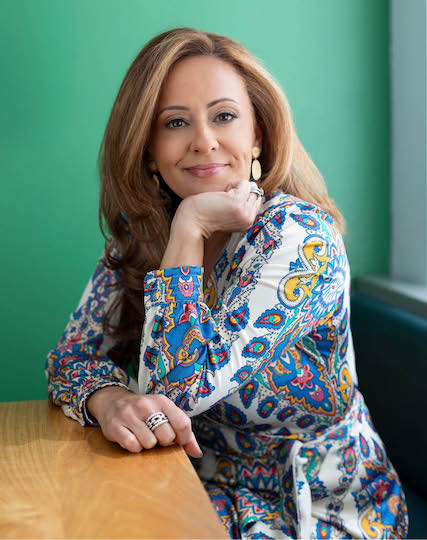Who lives in your city and what do they think about going “green”?
I just got back from the Behavior Energy and Climate Change Conference in Baltimore. Two things that I wanted to share right away.
- First, one of the best parts of the conference was the “Film Festival” one night where we were treated to a compilation of mostly hilarious video clips (commercials, PSAs, etc.) related to energy and climate issues.
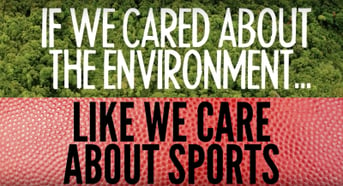 As a true Bostonian and avid sports fan, my passion for sports (Go Pats!) is rivaled only by my passion for saving the planet. So this video – “If we cared about the environment like we care about football” -- knocked my socks off.
As a true Bostonian and avid sports fan, my passion for sports (Go Pats!) is rivaled only by my passion for saving the planet. So this video – “If we cared about the environment like we care about football” -- knocked my socks off.
Warning: This video contains some NSFW language. (Apologies to Aldo Leopold)
- Secondly, there were several sessions – many of them led by the esteemed Shelton Group – that focused on very insightful research about how people perceive themselves and “green” behaviors. Some of this could be extremely useful at the local level as communities determine the best, most cost-effective ways to engage their residents in sustainability and energy initiatives.
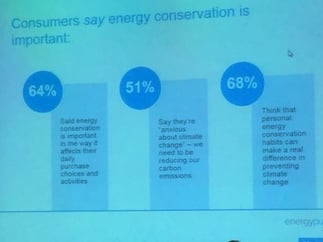 The good news is that “green” is becoming more and more a part of our identity. People want to be seen as green. Indeed, 73% are out there searching for green products, and 74% say a company’s environmental record is important.
The good news is that “green” is becoming more and more a part of our identity. People want to be seen as green. Indeed, 73% are out there searching for green products, and 74% say a company’s environmental record is important.
The less good news – especially if you’re trying to get your residents to make their homes more energy efficient to meet your energy or climate goals – is that we’re seeing a decline in home energy efficiency activities. 2010 marked a high point of people indicating an interest in home energy improvements, perhaps because they were trying to save money during the recession. But current surveys show that people prefer to make aesthetic improvements to their homes, they don’t realize how big of an impact their home energy use has (more aware of transportation impact), and 47%
think their homes are already efficient.
The Shelton Group’s blog post “It’s Time to Start Connecting Environmental Impact to Home Energy Efficiency” is a great read with more detail on this conundrum. In it they say “The bottom line is this: of the Americans who are most concerned about climate change and their part in it, the very Americans actually taking action, they’re not taking action in their homes. They are doing things to be friendlier to the environment, they’re just not doing the highest impact things.”
The Shelton Group will be releasing their EcoPulse and EnergyPulse research soon, and we’ll be sure to circle back with you with additional insights and suggested strategies.
The most illuminating piece from their previous research and what I find most relevant to our local government clients relates to “audience identity.” These photos of the presentation slides show the breakdown of the four main audiences they’ve found in their 10+ years of surveying the American public on energy issues: True Believers; Concerned Parents; Cautious Conservatives; Working Class Realists.
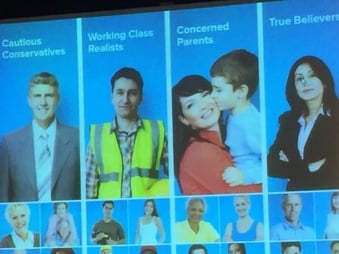
They dove into the best way to communicate with these distinct audiences and kept hammering at the point that these are just that: distinct, unique audiences. Just a disclaimer that the findings they communicated at the conference related most directly to home energy efficiency, one of their focus areas.
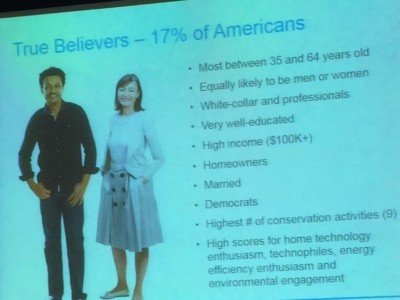
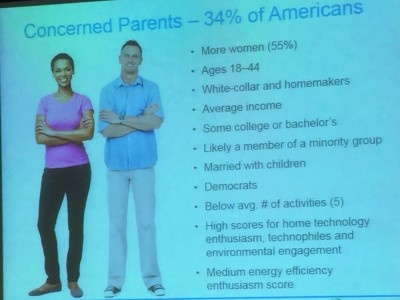
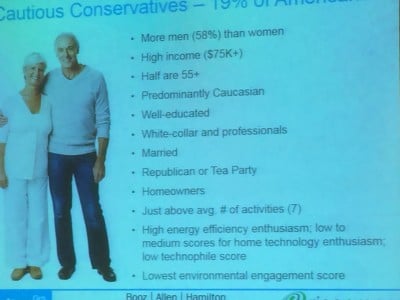
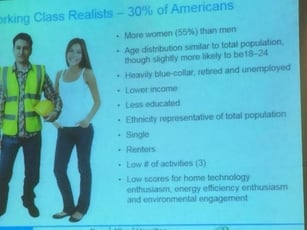
I’ve barely skimmed the surface of what I learned at BECC, and I plan to do a deeper dive in a future blog post or podcast. But I hope in the meantime this got your wheels turning the way it did mine!

